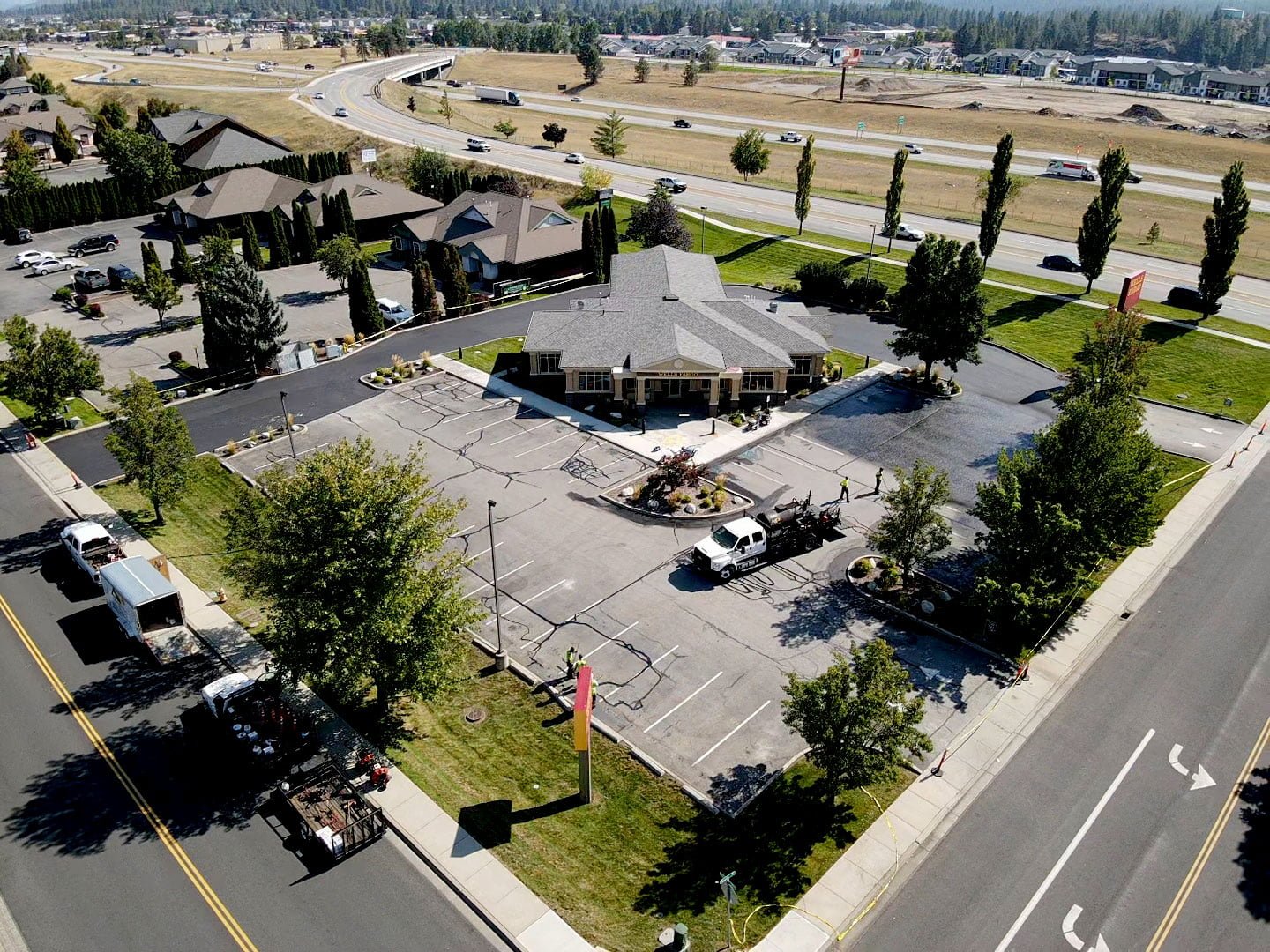Parking lots are essential components of any business or property, serving as the first point of contact for visitors and customers. Over time, the asphalt in these parking lots can deteriorate due to the effects of weather, traffic, and general wear and tear. When this happens, property owners are faced with a critical decision: should they resurface the existing asphalt or opt for a complete replacement? In this blog post, we will explore the pros and cons of both options to help you make an informed choice.
Resurfacing Parking Lot Asphalt
Resurfacing involves laying a new layer of asphalt over the existing surface. This is a cost-effective and less disruptive solution compared to full replacement. Here are some of the advantages of resurfacing:
- Cost Savings: Resurfacing is generally more budget-friendly than a complete replacement, as it doesn’t require the removal of the old asphalt.
- Time Efficiency: The process is quicker since there’s no need to excavate and replace the entire parking lot surface. This means minimal disruption to your business or property.
- Aesthetic Improvement: Resurfacing can give your parking lot a fresh, smooth appearance, enhancing curb appeal.
However, it’s important to note that resurfacing is not suitable for all situations. It’s most effective when the existing base is still in good condition and minor repairs, such as patching potholes and cracks, can be made. If the underlying base is severely damaged, resurfacing may not provide a long-term solution.
Replacing Parking Lot Asphalt
When the underlying base is extensively damaged or the parking lot has reached the end of its service life, a complete replacement may be the best option. Here are the advantages of replacing parking lot asphalt:
- Durability: A full replacement ensures a new, solid foundation, maximizing the lifespan of your parking lot.
- Enhanced Drainage: You can improve the parking lot’s drainage system, reducing water pooling and the risk of erosion.
- Customization: A full replacement allows for the installation of upgraded features such as better lighting, line striping, and landscaping.
However, replacement is generally more expensive and time-consuming compared to resurfacing. It can also cause more disruption to your property, particularly if it’s a high-traffic area.
Choosing the Right Solution
The decision between resurfacing and replacing parking lot asphalt depends on several factors, including the current condition of the lot, your budget, and your long-term goals. Here’s a step-by-step guide to help you make the right choice:
- Evaluate the Current Condition: Assess the extent of damage to your parking lot. If the base is still in good shape and surface damage is relatively minor, resurfacing may be a viable option.
- Consider Your Budget: Determine your budget for the project, including maintenance and repairs. Resurfacing is generally more cost-effective in the short term, while replacement offers a longer-term solution.
- Long-Term Goals: Think about your property’s long-term plans. If you anticipate increased traffic or changes in land use, a full replacement might be the better investment.
- Consult Professionals: Seek advice from experienced asphalt contractors who can provide an expert opinion based on your specific situation.
Conclusion
Whether you choose to resurface or replace your parking lot asphalt, it’s essential to consider the current condition, budget, and long-term goals of your property. Each option has its advantages and disadvantages, and the right choice will depend on your unique circumstances. Ultimately, a well-maintained parking lot contributes to the safety and overall experience of your visitors and customers, so make your decision carefully to ensure the longevity and functionality of this vital asset.


